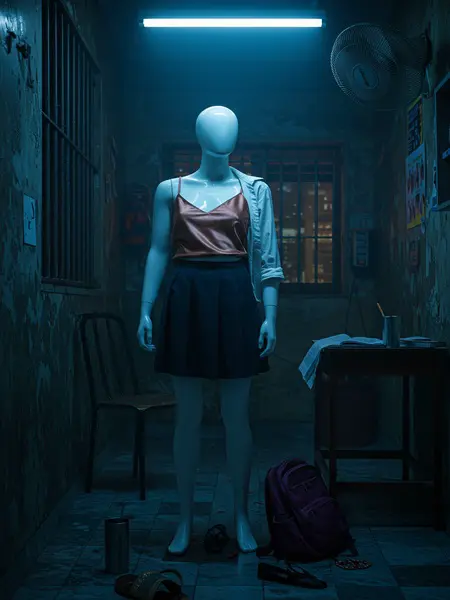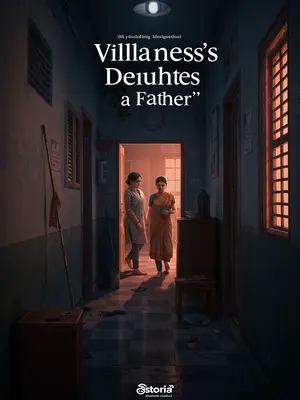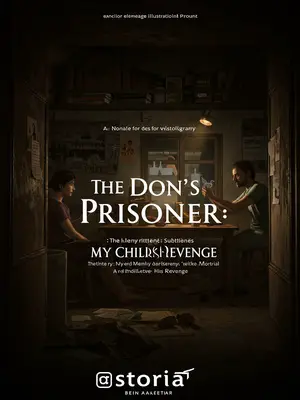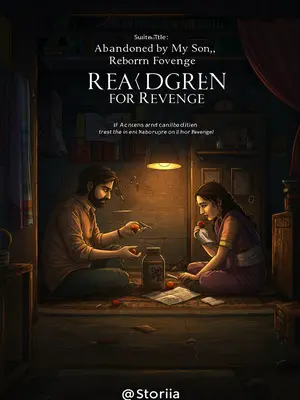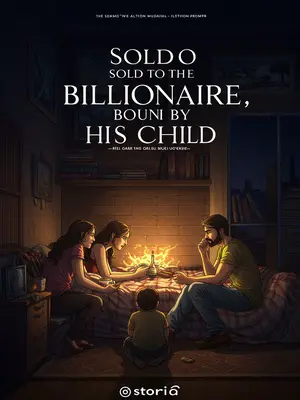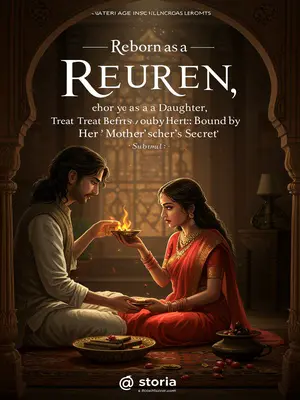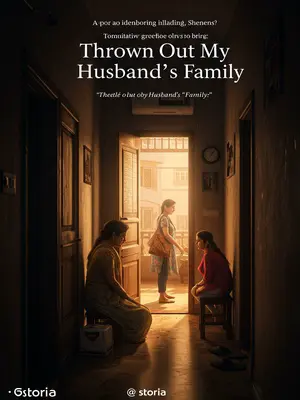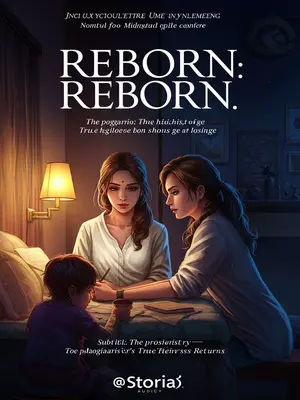Chapter 2: Three Lakh Rupees and a Plan
“Papa, I want to repeat a year. The school admission fee is three lakh rupees. Please, give me another chance. I promise I’ll study hard this time.”
I’d just trudged in from a late shift at the LIC office when Ananya burst from her room, dropped theatrically to her knees, and clung to my leg, begging for money to attend Mumbai’s top private school.
Her grip was tight, her bangles digging into my shin, and I could smell her coconut hair oil mixing with the kitchen’s masoor dal. My bag hit the floor with a dull thud. Even Laxmi, our old cat, paused in the doorway, tail twitching, as if she too sensed the tension.
I was caught off guard.
Just that morning, she’d been shouting at me—her voice echoing off the photo frames of her school awards: “If you try to keep me away from Raj, na, I’ll never forgive you. Don’t even think I’ll be there when you’re old!” I remembered her words, the way she stormed out, slamming the door so hard the photo frames rattled.
How could her attitude flip so quickly?
Maybe she saw the suspicion in my eyes. Ananya looked up, eyes red, voice trembling at the right moments: “I watched an educational documentary today and realised the best way out for people like us is to study hard.”
“I don’t want to waste my life. I want to repeat a year at the best school, get into IIT or Delhi University, and make you proud, Papa.”
Her words landed perfectly, almost too perfectly, like a scene from those serials her mother used to love. I caught her glancing at her phone, fidgeting as if waiting to see if her act was convincing enough.
“It’s good that you’ve come around. As long as you’re willing, Papa will pay for everything.”
There isn’t a parent who doesn’t want their child to succeed. Hearing her say this, I was moved. But still—what kind of documentary changes a stubborn mind overnight? I made a mental note to recommend it to my LIC colleagues—maybe it could fix their ‘modern’ kids too.
Actually, I’d wanted her to repeat at her old school—familiar teachers, no adjustment. But she insisted on the most expensive private one. Those fees—lakhs, just for a year.
Still, if she wanted to progress, I was ready to support her. Isn’t that why we squeeze into trains and pinch pennies, all for our children’s future?
My fingers hovered over my wallet, but something in her eyes made me pause. Was this really my daughter, or just another character in her WhatsApp group’s story?
Suddenly, I saw a flurry of WhatsApp forwards floating above her head:
[Great, the heroine is about to succeed! 🥳]
[Thank goodness for a second chance, or she’d have missed out on true love because of her old-fashioned father.]
[In her last life, she had money and security but no love. This time, she’ll get both!]
[Worthy heroine—day one of rebirth and already plotting her elopement!]
Each line jabbed at me, making me uneasy.
I stalled. “By the way, didn’t Uncle Sharma’s nephew repeat a year and get into IIT? You’ll do well, just like him.”
Ananya rolled her eyes. “Who wants to be like him? That guy became a broke sarkari babu, did arranged marriage, boring life. No thanks.”
Her contempt was sharp, almost burning. I forced a smile. “You’ve grown up, beta. You have your own ideas.” My voice cracked.
But she slipped up—Uncle Sharma’s nephew only just got into IIT. How does she know his future?
The WhatsApp forwards scrolled again:
[Why is this dad rambling? Just hand over the money!]
[The hero is waiting in the hospital—hurry, or he’ll be disabled for life!]
[Uff, someone get rid of this villainous dad so our heroine can be with her love! 🔪]
The unease grew. I put my wallet away. “No rush. The fee can wait a few days.”
Her lips quivered, bravado flickering. For a second, the teenager behind the drama peeked through, clutching her phone as if her digital audience would rescue her.
